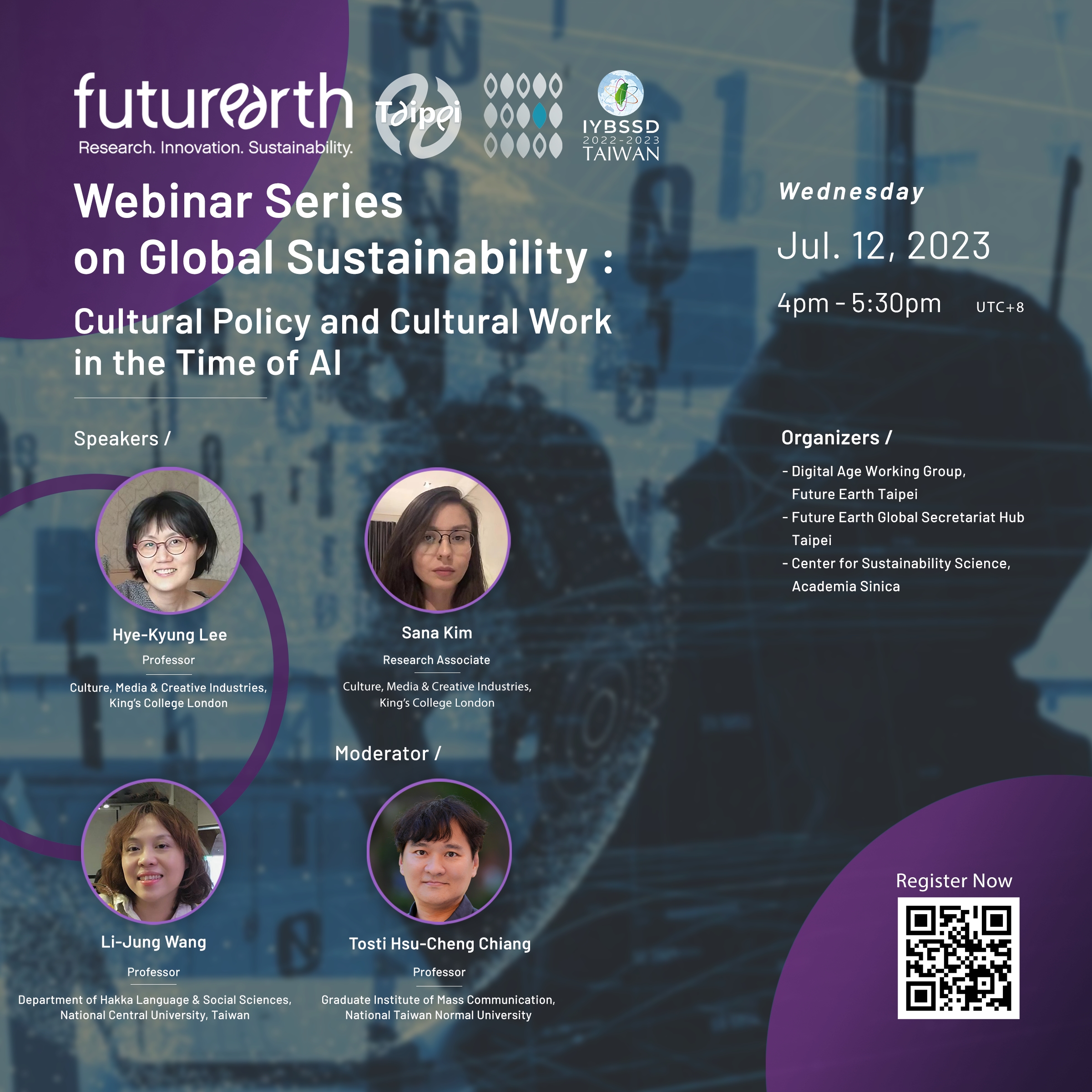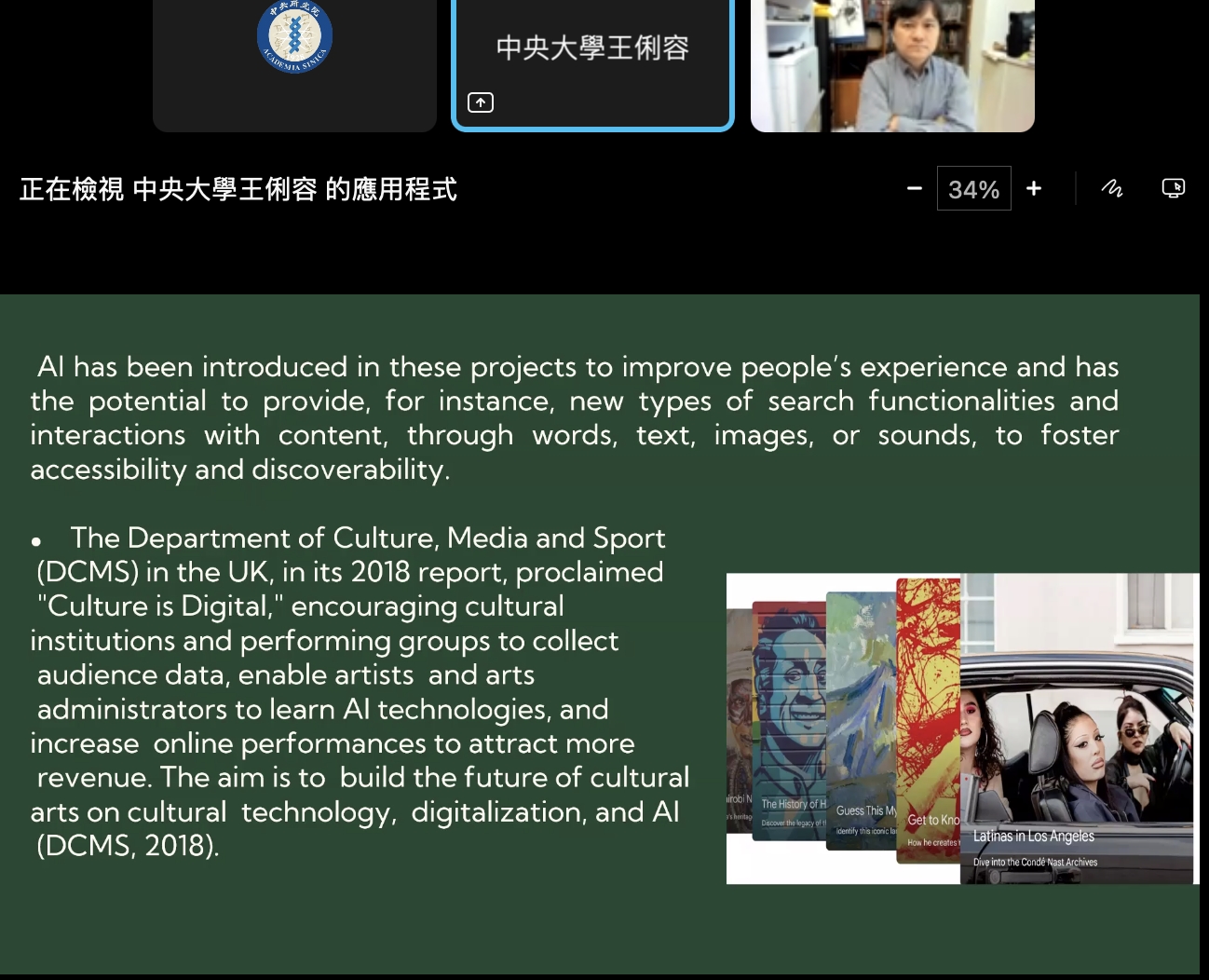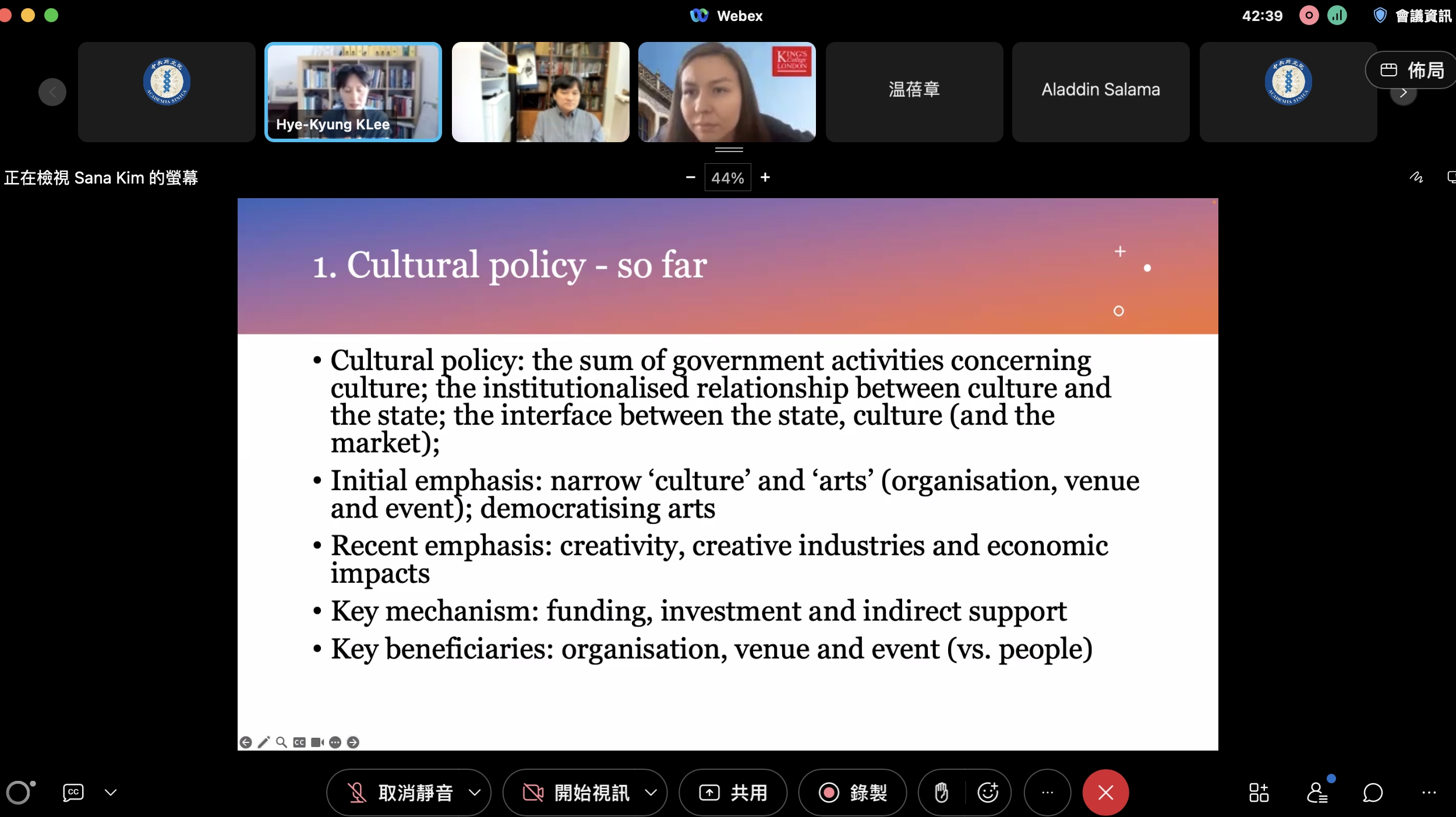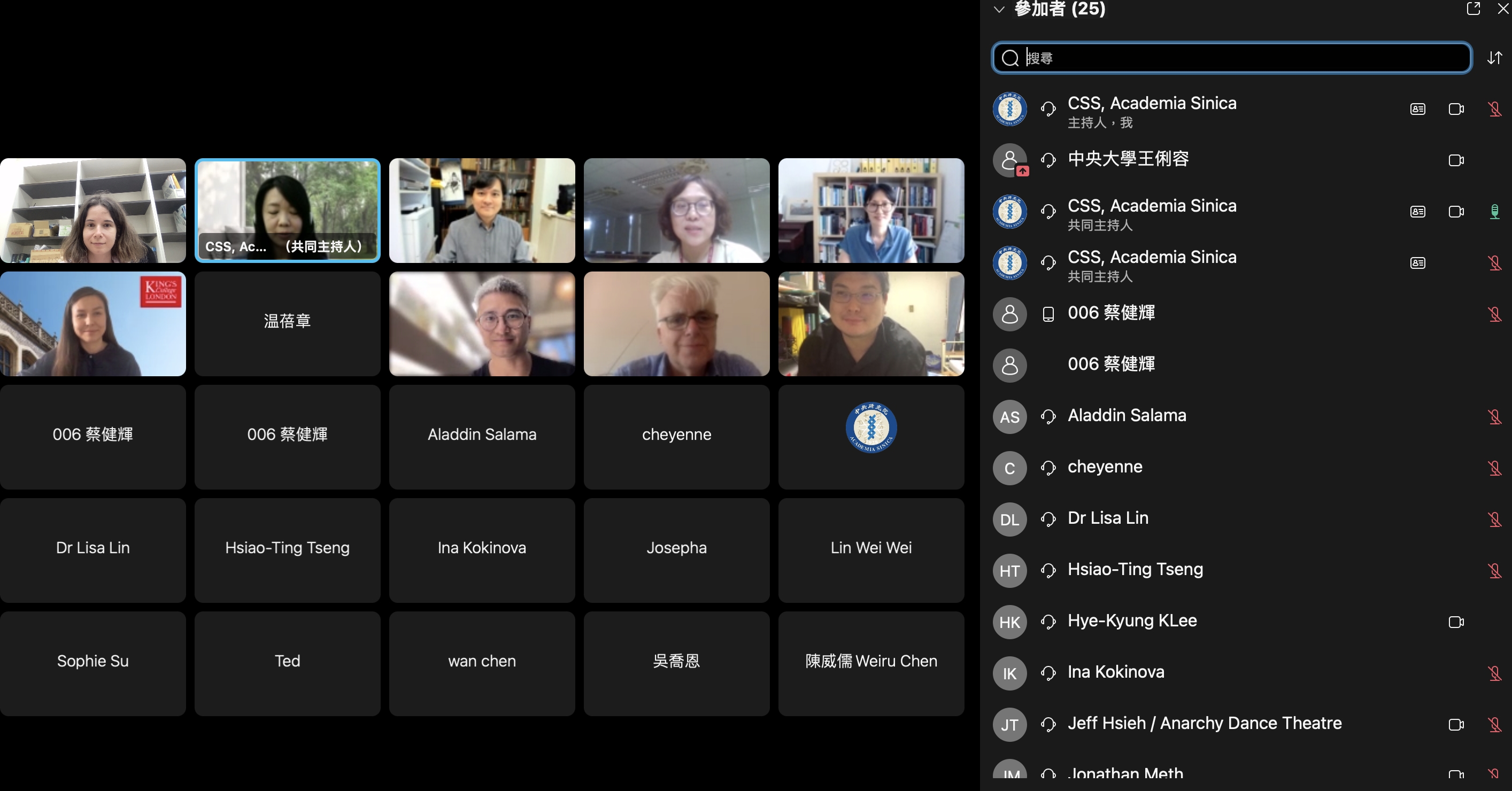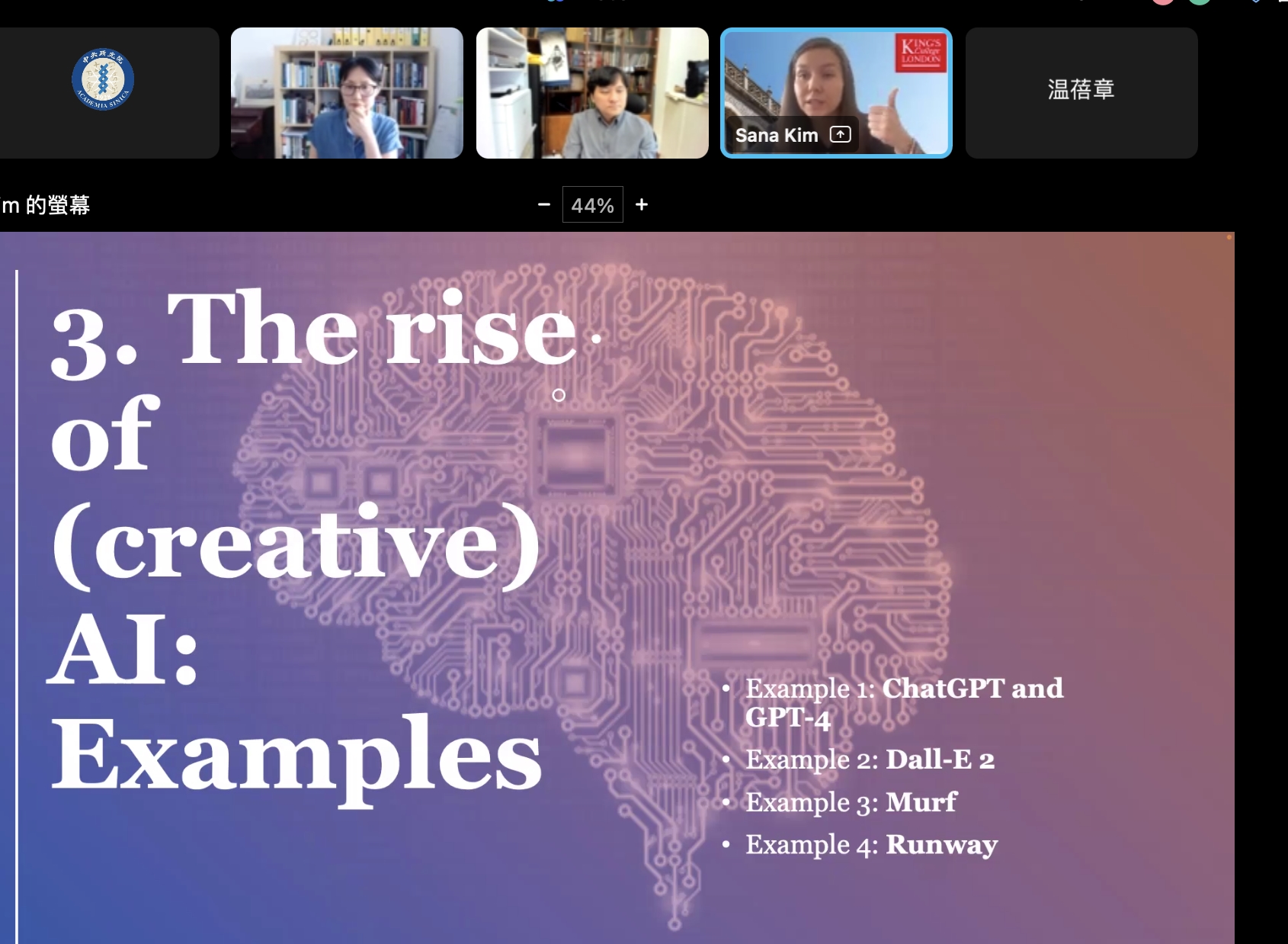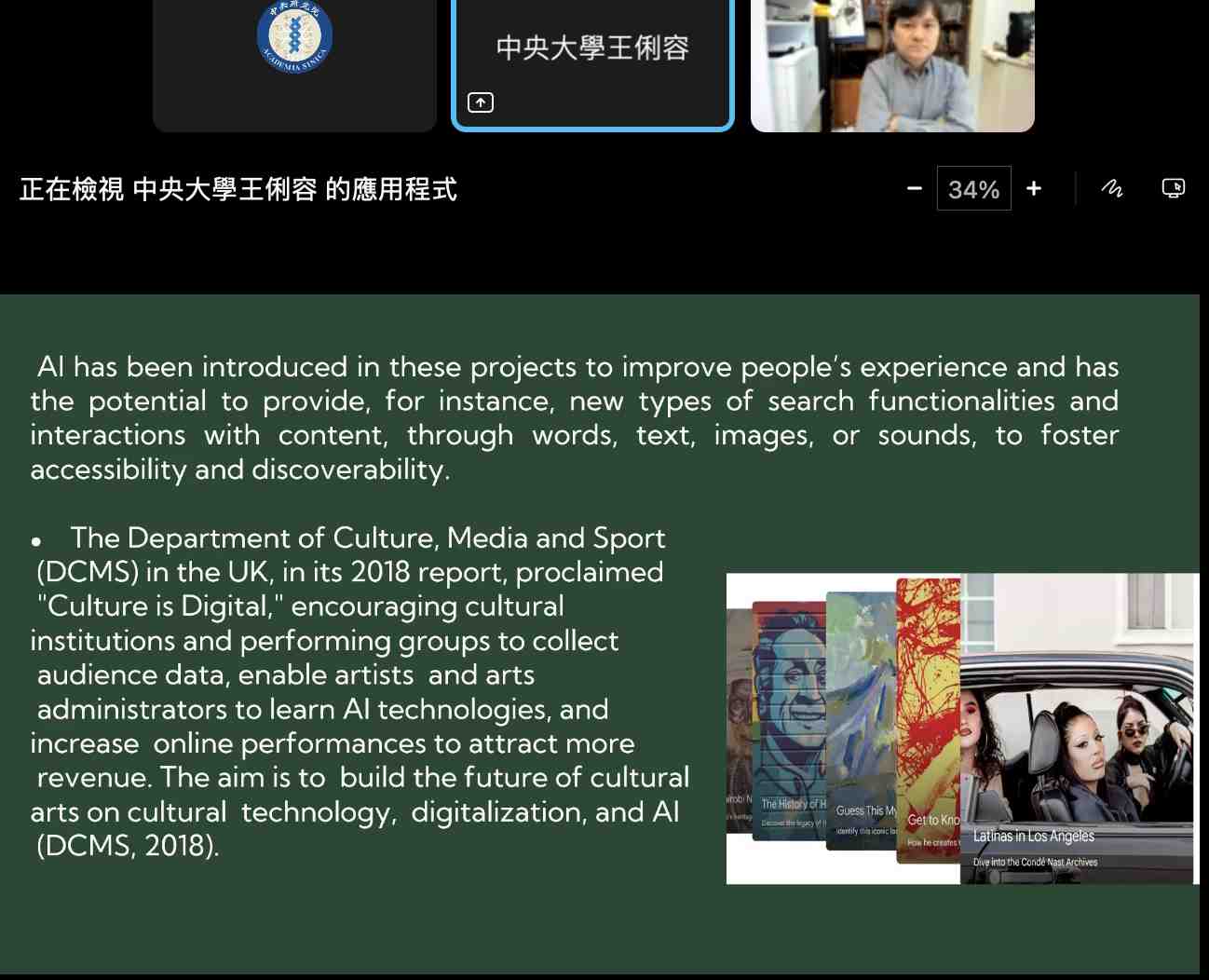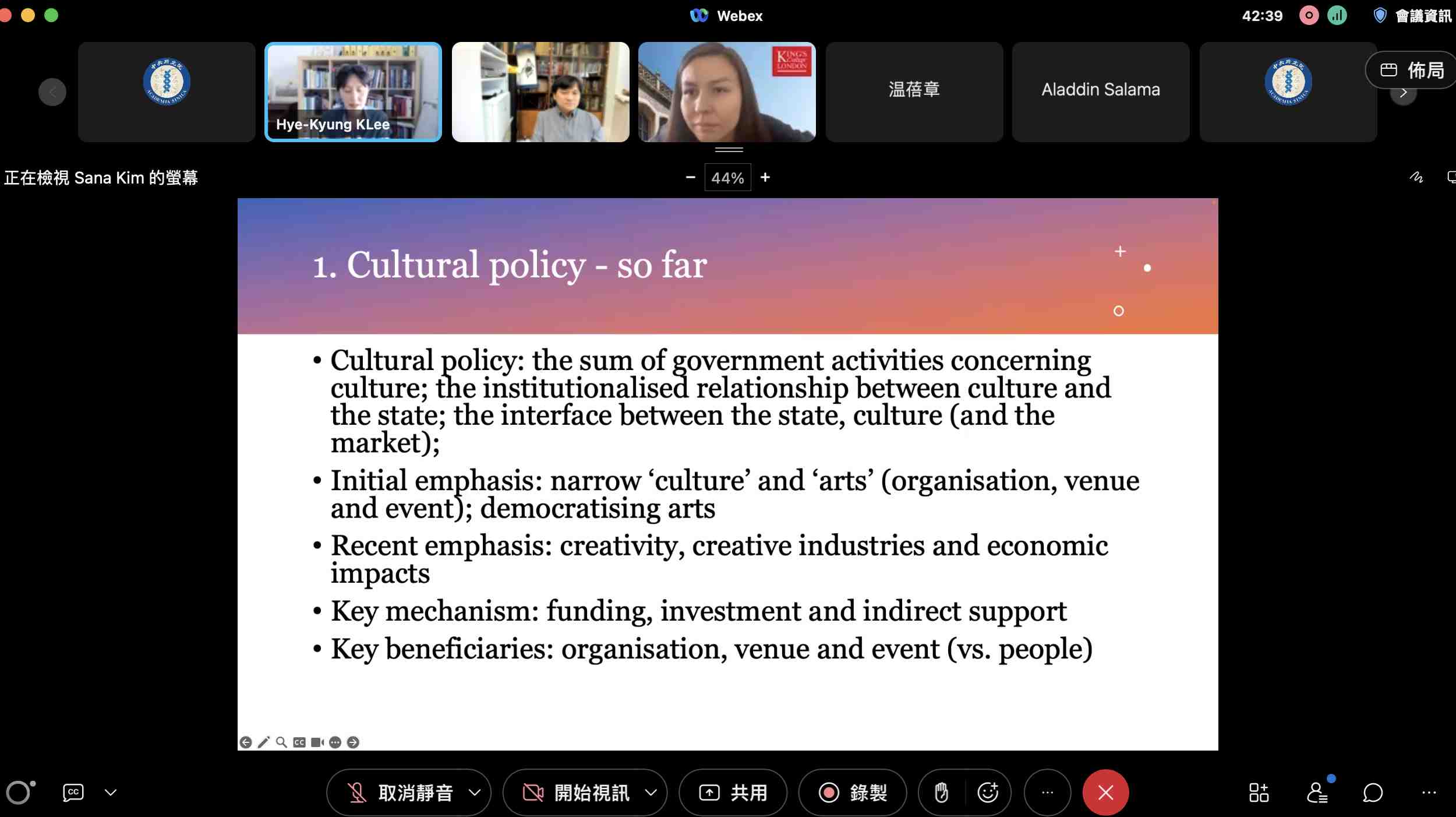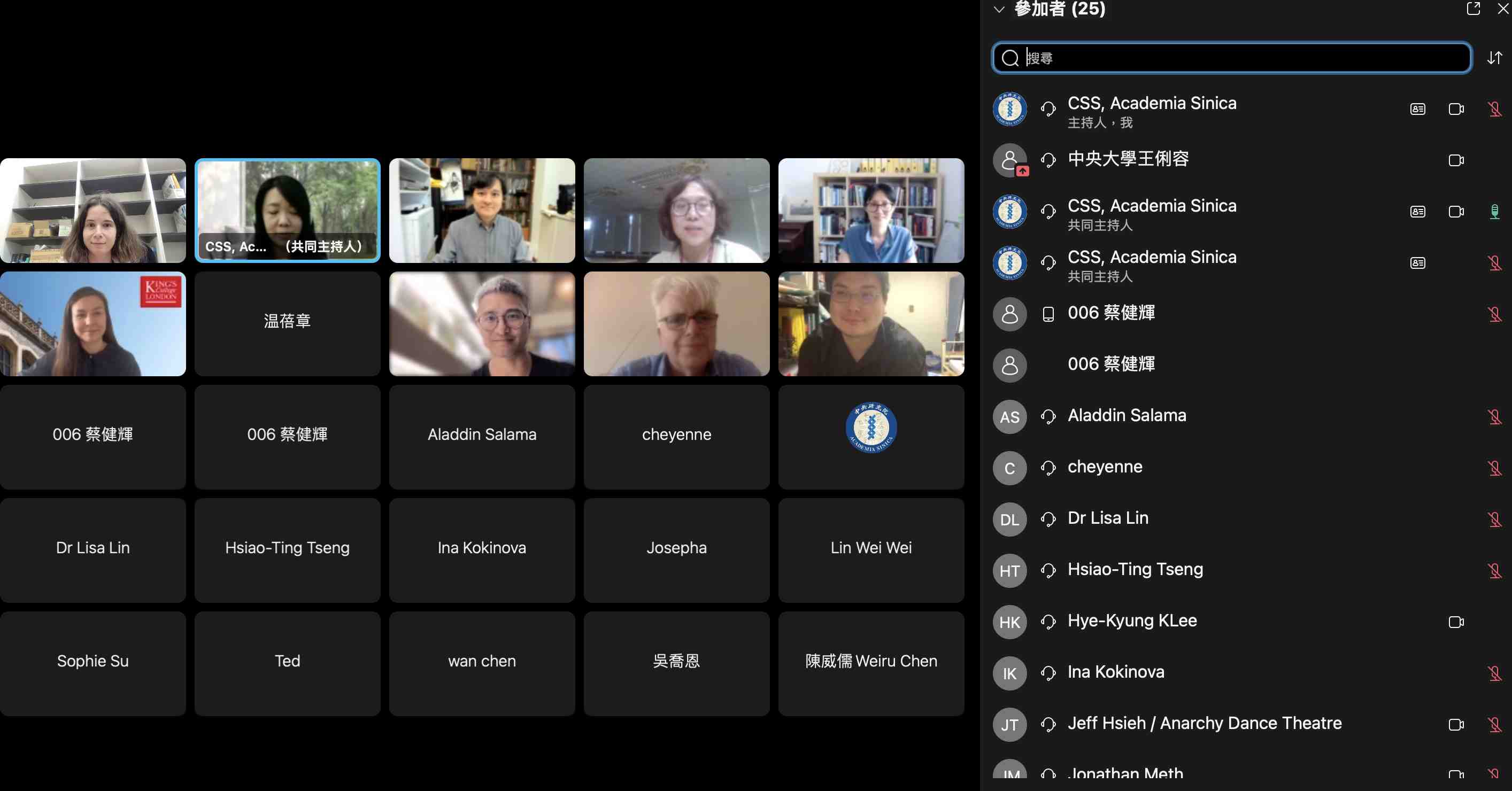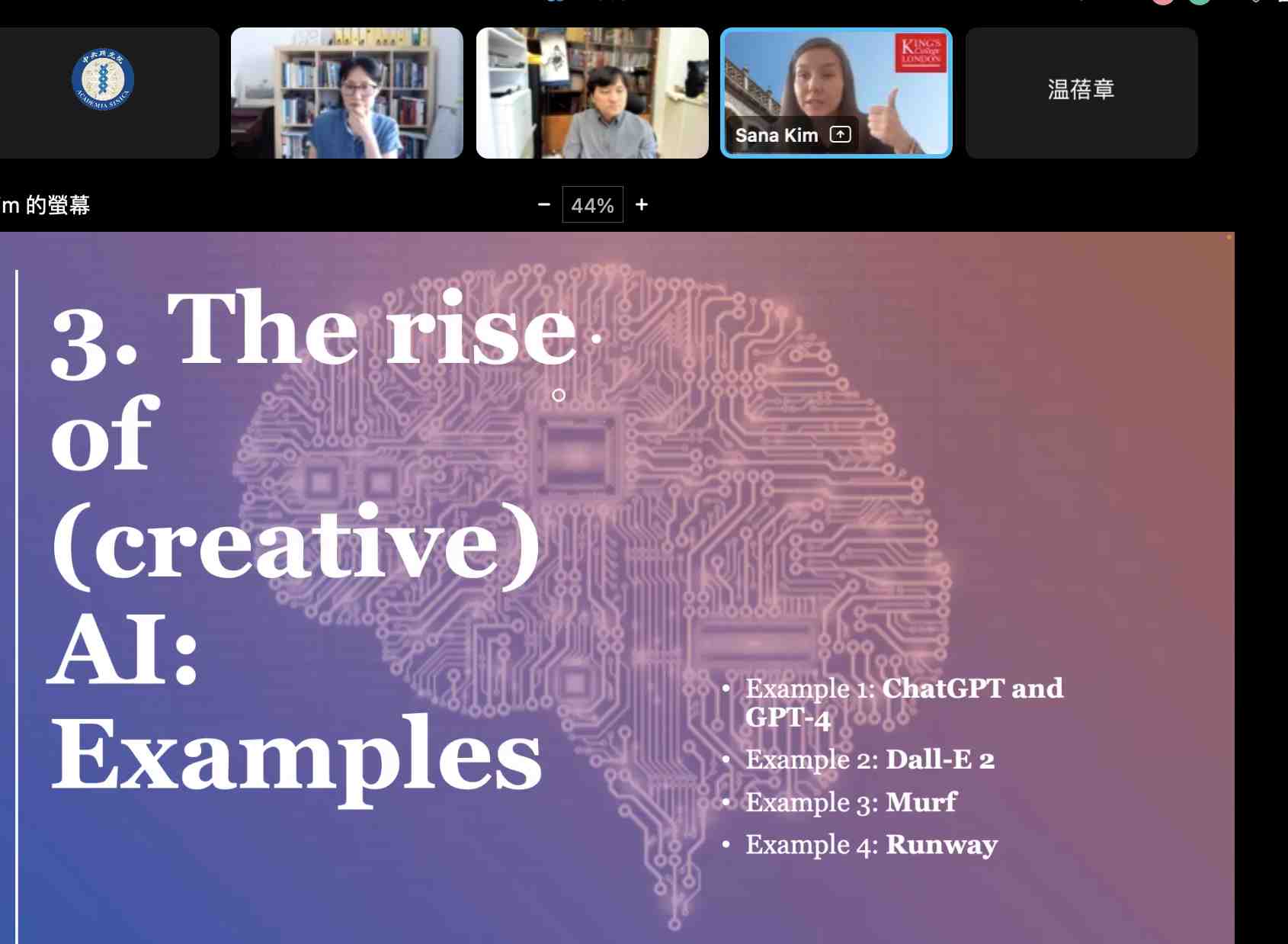Webinar Series on Global Sustainability — Cultural Policy and Cultural Work in the Time of AI
Artificial intelligence has had multifaceted influences on human culture, ranging from material permeation to the spiritual realm. For example, big data and algorithms have intermediated various choices for cultural engagement, replacing the traditional expertise and art recommendations of museum curators, art gallery curators, or critics. Algorithms and machine learning have shaped the public domain and monopolistically manipulated the attention of the entire society. Another significant impact is that algorithms recommend various forms of visual or performing arts participation, but the audience lacks an understanding of the context and background of the works. AI can provide recommendations and assistance in the production stage of art, but it challenges the definition of copyright and artistic originality. The digital divide intensifies the inequality of cultural participation. Algorithms and recommendation systems reinforce the echo chamber effect in art appreciation. If everyone is an artist and artworks are placed on online platforms, the labor rights and financial struggles of art creators are often overlooked. How can the data security and proper use of personal data from extensive cultural participation be ensured? How should cultural researchers and policymakers face the new challenges brought by AI? What measures should art educators and cultural creators take in respond?
Activity Goals aligned with SDGs Projects




Goal
Science for All、Science Cultivation、Public Engagement
Type of event
Seminar/Forum/Lecture
Workshop/Symposium
Organizer
- Digital Age working group
Future Earth Taipei - Future Earth Taipei Hub - IYBSSD@Taiwan - Center for Sustainability Science
Academia Sinica
Event Audience
Public participants
researchers
Contact
Dr. Dolly Chung 鐘鈺鈞 博士 (dolly0105@gate.sinica.edu.tw)
Telephone Number
27872536
dolly0105@gate.sinica.edu.tw
Result
1.tThe speech highlights the growing influence of AI in various aspects of society, including artmaking and cultural policy.2.tThe use of generative AI raises questions about copyright protection, recognition of AI-generated creations, and the difficulty of clarifying the provenance of AI artwork.3.tThe democratization of creativity is emphasized as AI tools aim to make content creation more accessible and affordable to a wider range of people.4.tThe speech highlights the legal and ethical challenges associated with AI, including copyright infringement and the exploitation of artists and performers.Labor unions, such as Equity and the Writers Guild of America, are advocating for regulations to protect the rights and interests of creative workers in the face of AI advancements.
Number of Participants28人
Featured events
Contact Us
- Tel: 02-7749-6818
- Email: iybssdtw@gmail.com
Adviser

自然科學及永續研究發展處
Organizer
國立臺灣師範大學科學教育研究所、自然科學及永續研究推展中心、國立成功大學材料科學及工程學系、台灣物理學會、中國化學會
Co-organizer
中央研究院永續科學中心、中原大學物理學系、中華民國數學會、行政院原子能委員會、財團法人國家實驗研究院國家高速網路與計算中心、財團法人國家衛生研究院、高雄市政府教育局、國立中央大學科學教育中心、國立中正大學科學教育中心、國立成功大學科學教育中心、國立自然科學博物館、國立東華大學科學教育中心、國立科學工藝博物館、國立海洋生物博物館、國立海洋科技博物館、國立高雄大學科學教育中心、國立高雄師範大學、國立清華大學跨領域科學教育中心、國立彰化師範大學、國立臺灣大學科學教育發展中心、國立臺灣科學教育館、國家衛生研究院、淡江大學科學教育中心、逢甲大學綠能科技暨生技產業發展研究中心、臺北市政府教育局、臺灣永續棧、臺灣海洋聯盟、臺灣港務股份有限公司
